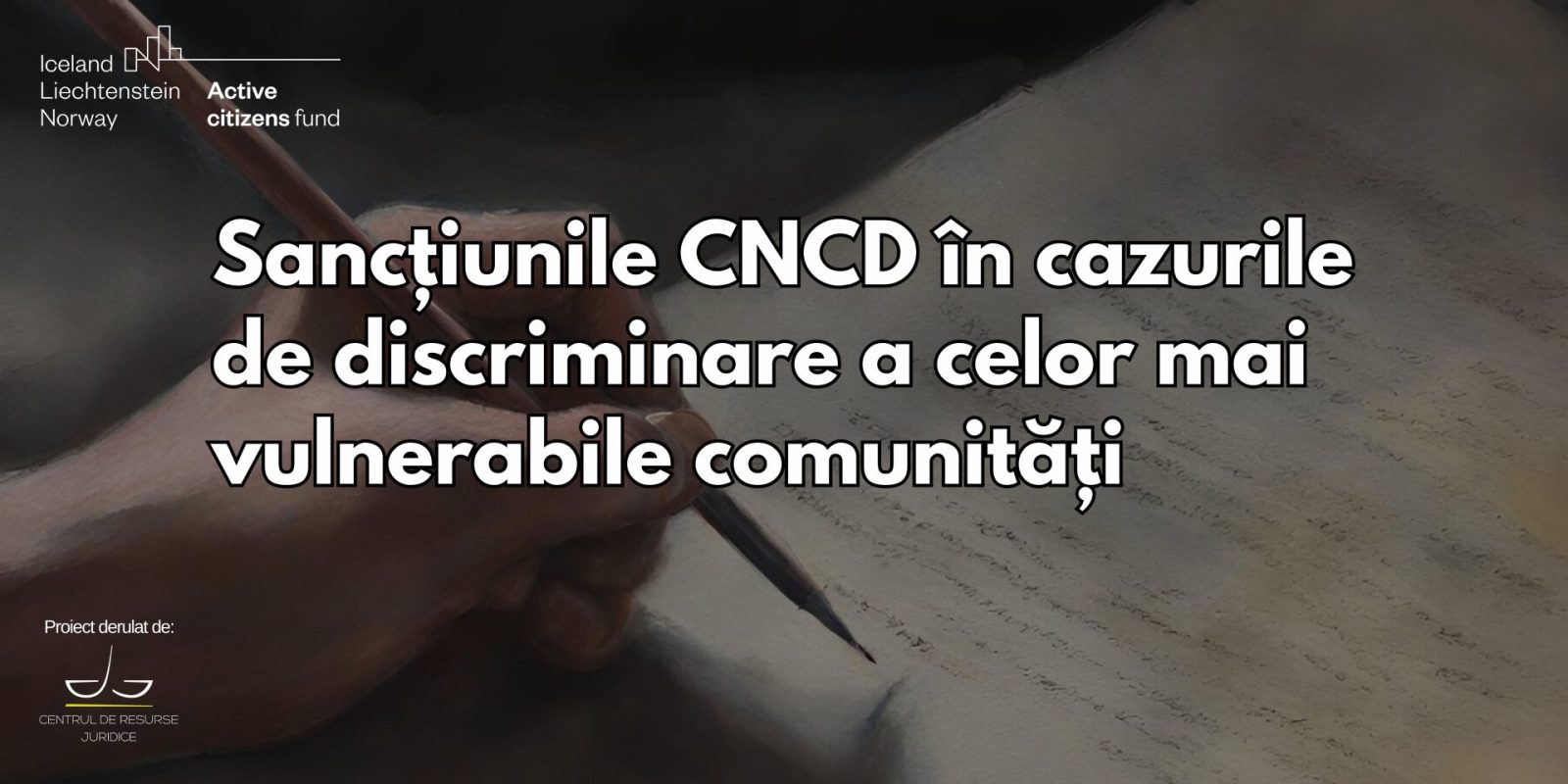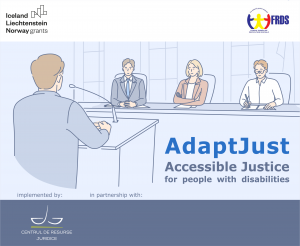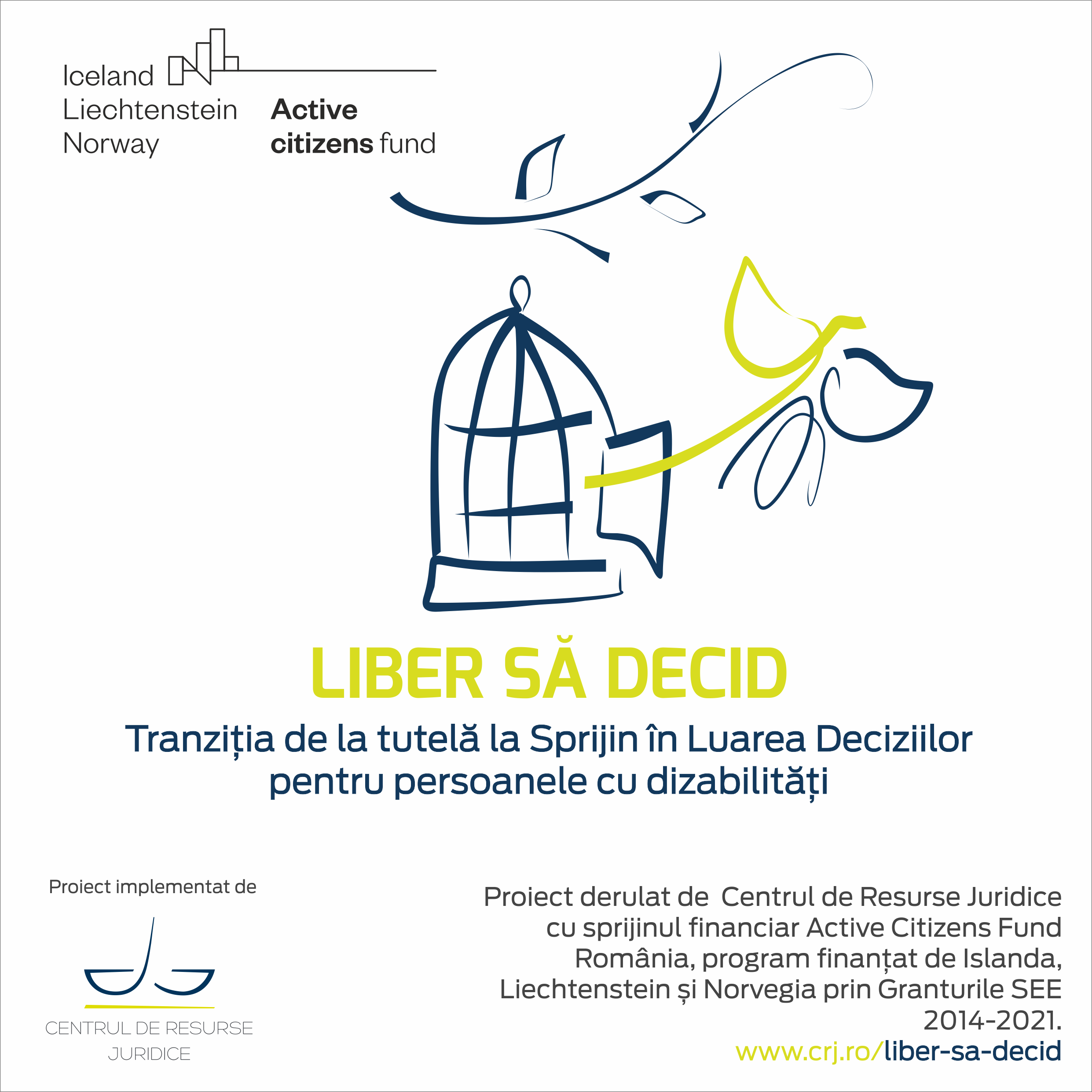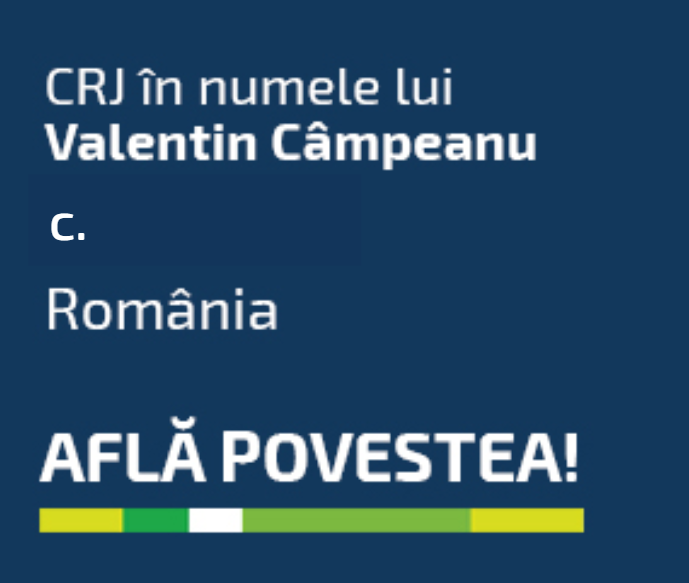1. Sanctions regime according to OG no.137/2000
A person who has been discriminated has the possibility to submit a petition to the National Council for Combating Discrimination (NCCD), but also to file a claim for damages before a court of law.[1] If the NCCD has taken up the case and considers that an act of discrimination has taken place, it can sanction it with a warning[2] or a fine.[3]
According to General Ordinance no.2/2001, the warning is applied in the case of less serious offences and represents a “verbal or written warning to the offender of the social danger of the offence committed, accompanied by a recommendation to comply with the legal provisions”.[4]
With regard to the fines, the General Ordinance No 137/2000 (OG No 137/2000) provides different amounts:
A fine of between 1,000 and 30,000 lei shall be imposed for a discriminatory act against an individual, and if the discrimination targets a group of persons or a community, the fine may be between 2,000 and 100,000 lei.[5] Since the adoption of the OG No. 137/2000, the limits of the fines have been modified 5 times, the present thresholds being in force since 2013. Law 167/2020 for the amendment and completion of OG no. 137/2000 introduced the notion of moral harassment at work (art. 2 para. 51 -57), without adding anything to the general definition of harassment, except for the penalty, which is from 10,000 lei to 15,000 lei, from 30,000 lei to 50,000 lei and from 50,000 lei to 200,000 lei, respectively, for various acts related to moral harassment (art. 26 para. 11 -12).
2. Statistics on sanctions of the NCCD
In the case law of the NCCD, inconsistencies have been noted between the sanctions applied and the gravity of the case. Thus, according to Centre for Legal Resource’s (CLR) analysis of NCCD sanctions on hate speech for the period 2021-2022, as well as NCCD decisions in response to petitions by CLR in recent years, there are situations in practice where warnings are applied when the victims of discrimination are vulnerable groups (e.g. children with disabilities) and fines of 5.000 lei when a majority in Romania is affected (e.g. Christians, Orthodox Christians).[7] Also, these sanctions do not usually meet all the legal requirements, as warnings are not accompanied by a recommendation and fines are not motivated.[8]
For example, we present a series of cases:
- Roma discrimination cases
According to an analysis of the NCCD decisions on ethnical discrimination, i.e. Roma ethnicity, for the period 2019 – 2020, in 2019 alone, in one third (6 out of 19 decisions) of the cases the sanction of a warning was applied.[9] In the other 13 cases, fines ranging from 1,000 to 5,000 lei were imposed.
In half of the 2020 decisions (12 out of 24), the sanction was only a warning.[11] The other 12 cases were sanctioned with a fine, and only 2 of these cases received a fine of a high amount, respectively 10,000 lei.[12] In the first one, the mayor of a town denigrated the Roma community, claiming that they have children in order to receive social benefits and proposed abusive measures such as special investigations for couples who want to conceive, taking into consideration their financial situation and level of education.[13] In the second, the vice-president of a political party stated in a Facebook post that the old centre should be “cleansed” of Roma.[14] Taking into account that such cases are considered to be more serious, in view of the position of power and influence of those committing the discrimination, the platforms used to disseminate the message and the potential for replication and effect, the fine was 10,000 lei, although the maximum threshold provided for by OG no. 137/2000 for discrimination against a community is 100,000 lei.
In another case, in 2021, the statements of a former Prime Minister of Romania during a TV show blaming the Roma for the fact that Romania had not joined the Schengen area, were sanctioned with a fine of 2,000 lei.[15] In comparison, in the same year, statements according to which the mayor of a town did not implement some projects because of its membership to a political party, were also sanctioned with a fine of 2,000 lei.[16] Therefore, the fines do not seem to be applied proportionately, consistently and in accordance with the seriousness of the offence.
There’s another type of cases, where we notice a similar trend.
- Multiple discrimination cases
OG no. 137/2000 provides that multiple discrimination, i.e. discrimination on more than one ground, is an aggravating circumstance.[17] However, out of the 25 decisions issued between 2012 and 2020 in which discrimination on two or more grounds was found, 8 were sanctioned with warnings and 17 with fines between 1.000 and 5.000 lei.[18] The criteria most often invoked were ethnicity (predominantly Roma – in 8 decisions, but also Hungarian ethnicity – in 3 decisions), followed by age (in 5 decisions), disability (in 4 decisions), religion and physical appearance (in 3 decisions each).[19]
Therefore, even when an aggravating circumstance of multiple discrimination is found, the NCCD gives out warnings or very low fines for such acts of discrimination.
- Multiple discrimination in access to housing
An overwhelming majority of local councils have adopted decisions on the granting of social housing containing a series of discriminatory criteria, such as educational level, income, marital status or place of work.[20] Thus, people without higher education, with low incomes, from single-parent families or without a job are disadvantaged in obtaining social housing, which is in complete contradiction with the provisions of Law No. 116/2002 on social marginalization, but also according to the spirit of Law No. 114/1996 which considers access to housing as a right that must be exercised freely and without restrictions. In recent years, CLR has submitted 8 petitions to the NCCD concerning discriminatory criteria in the granting of social housing. To date, only 3 have been resolved and communicated to CLR, with the Council finding the existence of discrimination and imposing a fine of 5,000 lei. [21] In similar cases, the NCCD has imposed a warning [22] and fines of 2,000 lei[23] and 3,000 lei[24][25], respectively.
3. NCCD’s position
A non-exhaustive analysis has identified a number of explanations for how the NCCD decides on the sanctions it applies in relation to two petitions on social housing. Thus, in the case of the Roma Lawyers Association ROMAJUST against the Focșani Mayor’s Institution, the petitioner indicated that some criteria in the granting of social housing were apparently neutral, but in reality affected the Roma community. In response, the NCCD sanctioned the wrongful conduct with only a warning, considering that the situation can be simply remedied by amending the local council’s decision.[26]
The separate opinion in the Decision No 156/2018 stated that a warning in this case was not an effective, proportionate and dissuasive sanction and that a fine would have been proportionate to the gravity of the offence. Moreover, the offence should be taken seriously because because the acts were committed by a person in an important position in Romania, who had taken an oath to respect the laws and the rights of citizens.[27]
The European Roma Rights Centre brought a similar case to the NCCD [28]. In this instance, the NCCD stated in the reasoning of the judgment that the sanctions must be effective, proportionate and dissuasive, but imposed a fine of 2,000 lei.[29] In addition, it made a distinction between lower and higher fines, which we will reproduce in the following paragraphs [30]:
Arguments for a lower fine
- the discrimination found is indirect;
- it is the first finding of discrimination against the complainants;
- the complainants have taken over a general practice of local authorities, perpetuated for years, against which no issue of illegality has been raised so far, thus they were convinced that it is a correct practice
Arguments for a higher fine:
- in accordance with the provisions of Law no. 215/2001, art. 61 para. 2, the first obligation of the mayor is to ensure respect for the fundamental rights and freedoms of citizens, and the mayors have taken an oath to respect the law;
- the discrimination found is discrimination on the basis of ethnicity, considered by international treaties and ECtHR practice as racial discrimination, which is the most serious form of discrimination, even degrading treatment within the meaning of Art. 3 of the European Convention on Human Rights (e.g. Moldovan et al. v. Romania no. 2 of 12.07.2005);
- statistical data show that the problem in question leads to extremely serious effects in society;
- discrimination lasts for a long time.
Given that this was a form of discrimination against a community for which the law provided for a fine of between 2,000 and 100,000 lei, it is clear that the NCCD considered this to be a “milder” form of discrimination deserving a lower fine.
4. Conclusions
The relevant European Union Directives (e.g. Council Directive 2000/43/EC, Art. 15) and the case law of the European Court of Justice requires EU Member States to apply effective, proportionate and dissuasive sanctions. Failure to impose a fine cannot be considered an effective and dissuasive sanction. Proportionality can be ensured by the gradual imposition of a fine, depending on the seriousness of the offence, within the limits set by law. We therefore consider it appropriate to adopt effective sanctions that are both preventive and punitive in nature, such as fines that are towards the upper threshold, rather than warnings or fines close to the lower threshold; the choice of dissuasive sanctions that discourage both the offender and other persons from discriminating; awarding fines that are proportionate to the seriousness of the act of discrimination committed.
________________________________________
[1] ORDINANCE No 137 of 31 August 2000 on the prevention and punishment of all forms of discrimination*) **) – REPUBLICAN, Art. 20 and Art. 27 (OG 137/2000), Source: https://legislatie.just.ro/Public/DetaliiDocument/24129 (Romanian only) accessed 6 February 2024. [2] ORDINANCE No 2 of 12 July 2001 on the legal regime of contraventions, Art. 5 para. 2 lit. a, Source: https://legislatie.just.ro/Public/DetaliiDocument/29779 (Romanian only) accessed 6 February 2024. [3] OG 137/2000, art. 26. [4] OG 2/2001, art. 7 para. 1-2. [5] OG 137/2000, art. 26 para. 1. [6] EMERGENCY ORDINANCE No 19 of 27 March 2013 amending and supplementing Government Ordinance No 137/2000 on the prevention and punishment of all forms of discrimination, point 5, Source: https://legislatie.just.ro/Public/DetaliiDocumentAfis/146574 accessed 6 February 2024. [7] Centre for Legal Resource, 2021-2022: An Overview on Hate Crime and Hate Speech. Romania-Country Profile (Feb 2023), p 104, Source: https://www.crj.ro/wp-content/uploads/2023/03/ENG_Raport-Infractiuni-motivate-de-ura-2021-2022-1.pdf accessed 6 February 2024. [8] Ibid, p 103-104. [9] Centre for Legal Resources, Exploratory Study: The situation of discrimination against Roma and LGBTI+ Roma in Romania (2021), conducted within the INTERSECT project, in collaboration with ACTEDO, Mozaiq and UCTRR, p 16, Source: https://www.crj.ro/wp-content/uploads/2022/04/Study-on-Roma-LGBTI_eng-final-2021.pdf accessed 6 February 2024. [10] Ibid. [11] Ibid. [12] Ibid. [13] NCCD, Decision No 61/2020, Source: www.cncd.ro/wp-content/uploads/2021/01/Hotarare-61-2020-1.pdf (Romanian only) accessed 7 February 2024. [14] NCCD, Decision No 90/2020, Source: www.cncd.ro/wp-content/uploads/2021/01/Hotarare-90-2020-1.pdf (Romanian only) accessed 7 February 2024. [15] NCCD, Decision No 241/2021, Source: www.cncd.ro/wp-content/uploads/2021/03/Hotarare-241-2021.pdf (Romanian only) accessed 7 February 2024. [16] NCCD, Decision No 270/2021, Source: www.cncd.ro/wp-content/uploads/2021/03/Hotarare-270-2021.pdf (Romanian only) accessed 7 February 2024. [17] OG 137/2000, art. 2 para. 6. [18] Intersect study, p 7. [19] Ibid. [20] Centre for Legal Resources, Identifying discriminatory criteria in the allocation of social housing, (2021), Source: https://www.crj.ro/wp-content/uploads/2022/05/CB-Study-discriminatory-criteria.pdf accessed 7 February 2024. [21] NCCD Decision No 298 of 21.06.2023, Source: https://www.cncd.ro/wp-content/uploads/2023/10/Hotarare-298-2023.pdf (Romanian only) accessed 7 February 2024; NCCD Decision No 266/13.04.2022; NCCD Decision No 644/26.10.2022, Source: https://www.cncd.ro/wp-content/uploads/2023/02/Hotarare-644-2022.pdf (Romanian only) accessed 7 February 2024. [22] NCCD Decision No 156/11.04.2018, Source: https://www.cncd.ro/wp-content/uploads/2020/12/Hotarare-156-18.pdf (Romanian only) accessed 7 February 2024; NCCD Decision No 96/16.02.2022, Source: https://www.cncd.ro/wp-content/uploads/2023/06/Hotarare-96-2022.pdf (Romanian only) accessed 7 February 2024. [23] NCCD Decision No 511/20.07.2016, Source: https://www.cncd.ro/wp-content/uploads/2020/12/hotarare-511-16.pdf (Romanian only) accessed 7 February 2024. [24] NCCD Decision No 531/27.09.2017, Source: https://www.cncd.ro/wp-content/uploads/2020/12/hotarare-531-17.pdf (Romanian only) accessed 7 February 2024. [25] Centre for Legal Resources, article “Roma in Cluj-Napoca, zero chances for social housing”, available at: www.crj.ro/rom-in-cluj-napoca-zero-sanse-la-o-locuinta-sociala/ (Romanian only) accessed 8 February 2024. [26] NCCD, Decision No 156/2018, Source: www.cncd.ro/wp-content/uploads/2020/12/Hotarare-156-18.pdf (Romanian only) accessed 8 February 2024. [27] Ibid. [28] NCCD Decision No 511/2016, Source: www.cncd.ro/wp-content/uploads/2020/12/hotarare-511-16.pdf (Romanian only) accessed 8 February 2024. [29] Ibid. [30] Ibid.





